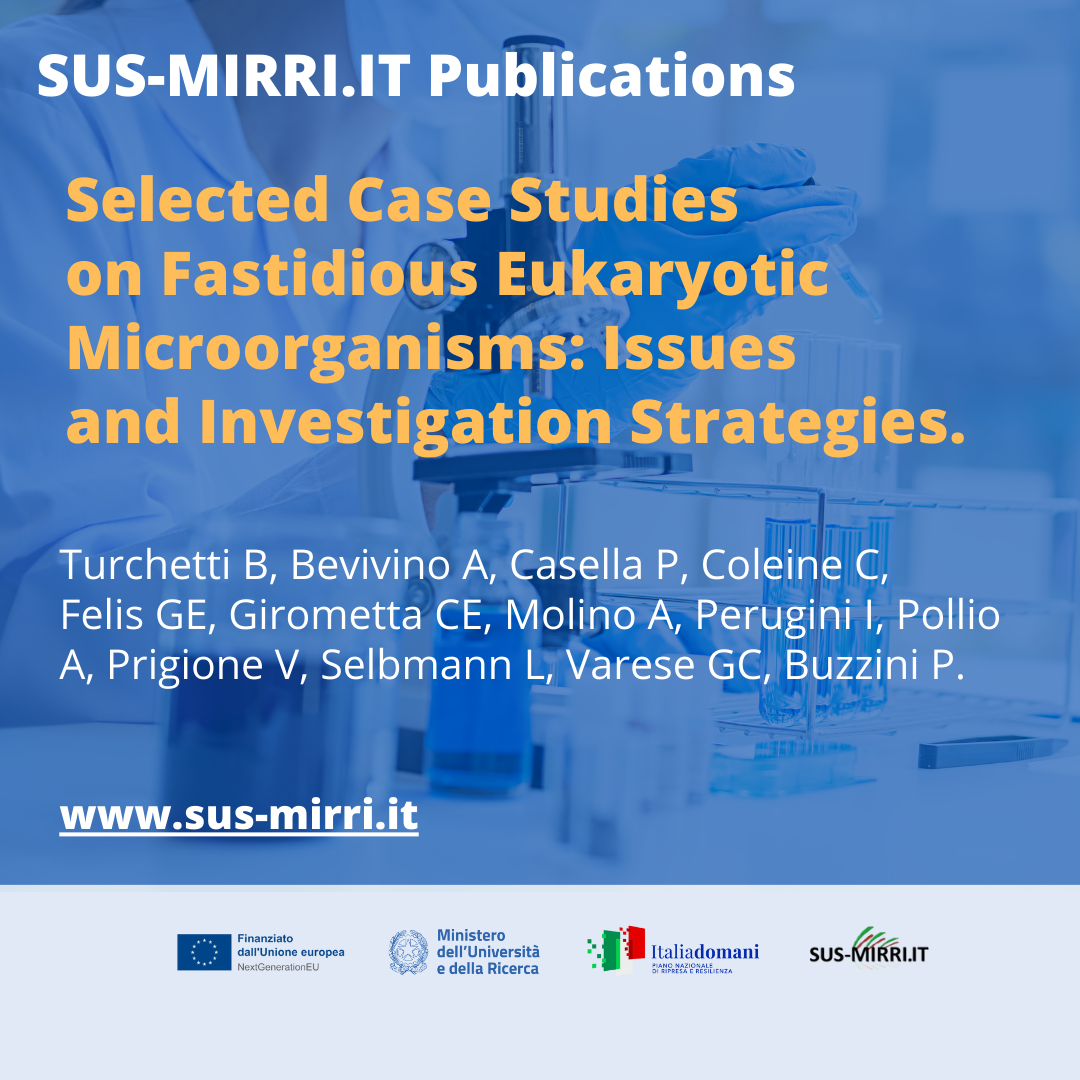Turchetti B, Bevivino A, Casella P, Coleine C, Felis GE, Girometta CE, Molino A, Perugini I, Pollio A, Prigione V, Selbmann L, Varese GC, Buzzini P. Selected Case Studies on Fastidious Eukaryotic Microorganisms: Issues and Investigation Strategies . Diversity , vol 15 https://doi.org/10.3390/d15070862
Abstract
The concept of fastidious microorganisms currently found in scientific literature is mainly related to the difficulty of isolating/culturing/preserving bacteria. Eukaryotes are investigated much less in this respect, although they represent a fundamental part of the microbial world. Furthermore, not only isolation, but also identification and culturing (in the perspective of long-term preservation) should be considered key aspects often impacting on the study of fastidious microorganisms, especially in terms of preservation in culture collections and biotechnological exploitation. The present review aimed to investigate the current state of the art on fastidious eukaryotes, with special emphasis on the efforts to improve their isolation, identification, culturing and long-term preservation in culture collections practices. A few case studies focused on some fastidious eukaryotic microorganisms (including possible customized solutions to overcome specific issues) are also presented: isolation and preservation of slow-growing fungi, culturing of Haematococcus lacustris, isolation of unialgal strains of Cyanidiophytina (Rhodophyta), identification of Metschnikowia pulcherrima clade yeasts, isolation and preservation of Pyricularia species, preservation of Halophytophtora spp.
Read the complete publication: https://doi.org/10.3390/d15070862



